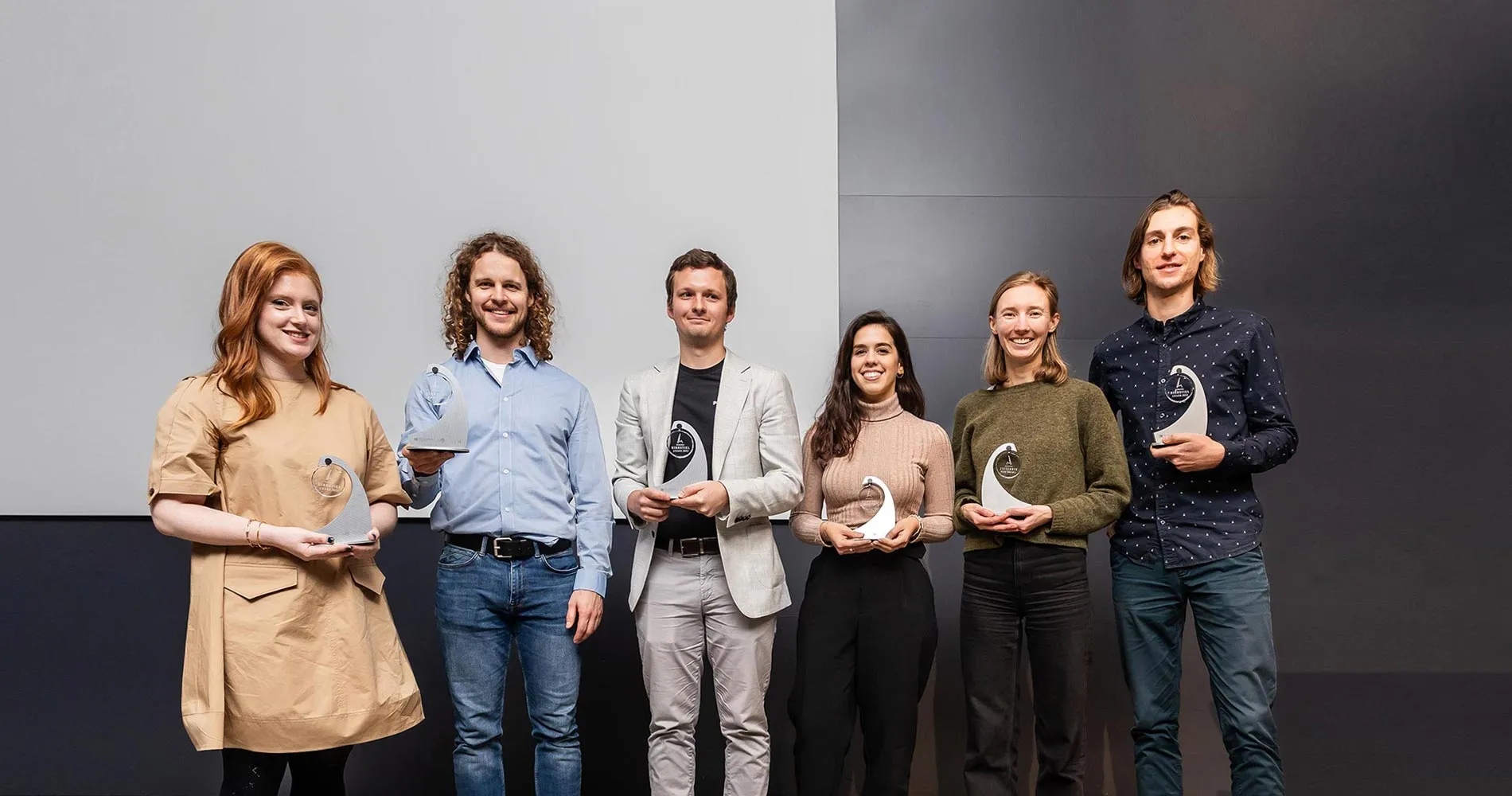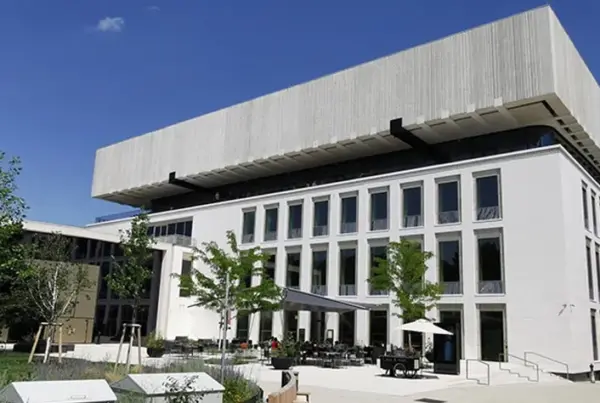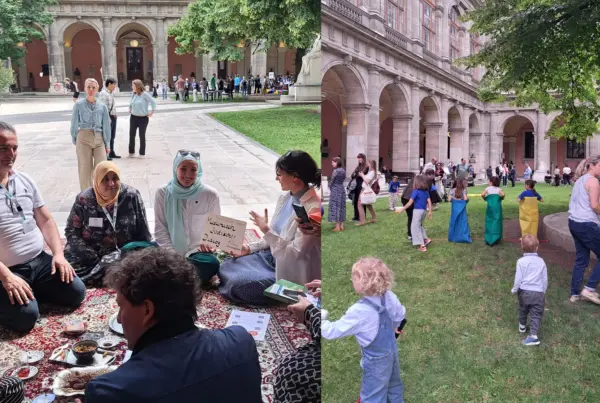The Birnstiel Award for Doctoral Studies 2023 was presented at Vienna’s Research Institute of Molecular Pathology (IMP) in November. The Award celebrates early achievement in molecular biology.
Benedikt Mandl, 13 December 2023
Six young scientists received the International Birnstiel Award in early November 2023 during a symposium at the Institute of Molecular Pathology (IMP) at the Vienna BioCenter. The IMP has become a world-class scientific institute modelled on institutions such as the Laboratory of Molecular Biology (LMB) in Cambridge or the European Molecular Biology Laboratory (EMBL) in Heidelberg.
The Award is given in recognition of doctoral research in molecular life sciences. This highly competitive award celebrates the early achievement of six young scientists working outside of Austria. Only one candidate per research institute or PhD program is considered for an award. The nominees are often chosen in a tough pre-nomination selection process.
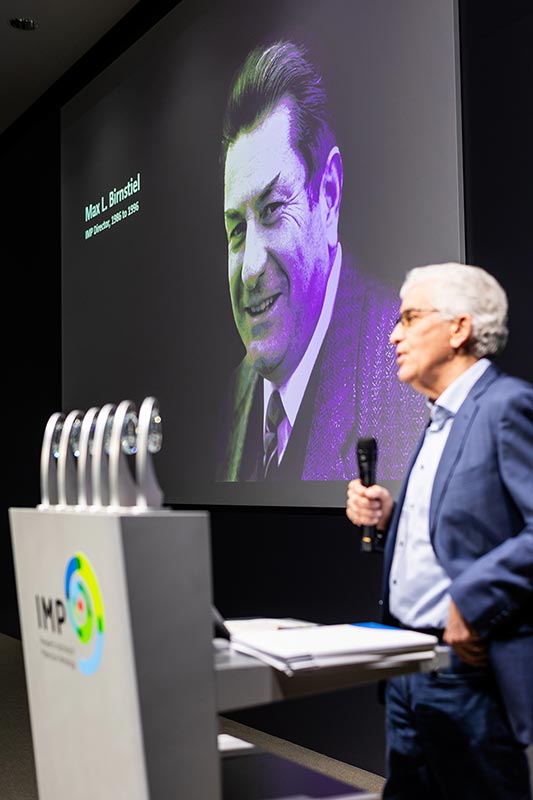 Meinrad Busslinger: The immunologist Meinrad Busslinger was among the first faculty members that Max Birnstiel recruited in 1988. He has chaired the award since its establishment in 2019.
Meinrad Busslinger: The immunologist Meinrad Busslinger was among the first faculty members that Max Birnstiel recruited in 1988. He has chaired the award since its establishment in 2019.
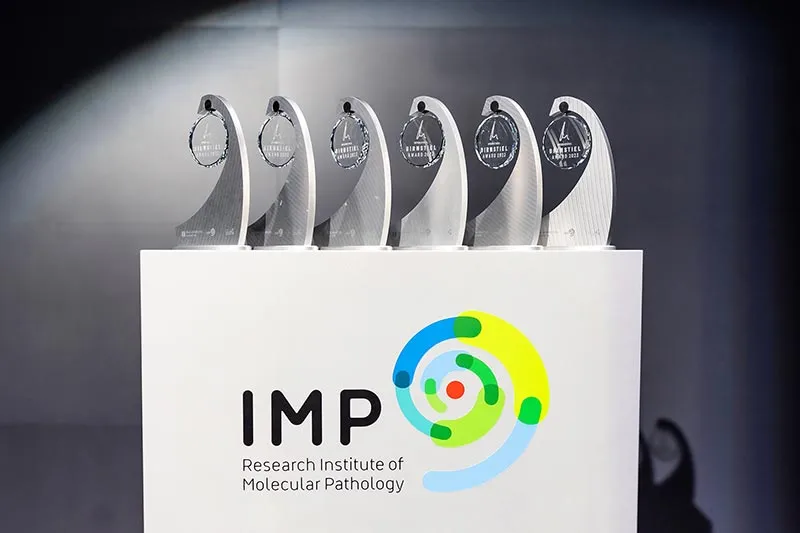 The trophies of the International Birnstiel Award 2023, as presented at the award ceremony in Vienna on 8 November.
The trophies of the International Birnstiel Award 2023, as presented at the award ceremony in Vienna on 8 November.
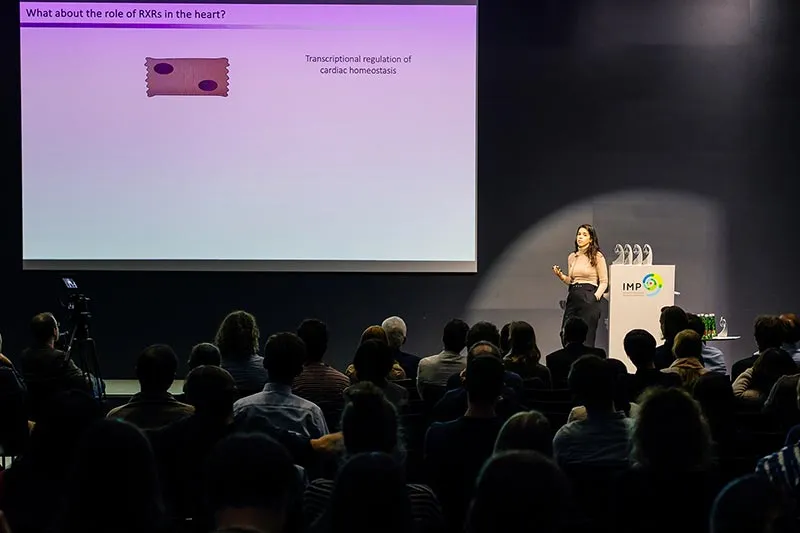 Laureates present their research in the frame of talks in a scientific symposium. Shown here is Ana Paredes (Spanish National Center for Cardiovascular Research – CNIC, now a postdoctoral researcher at the Wellcome Sanger Institute in Cambridge, UK).
Laureates present their research in the frame of talks in a scientific symposium. Shown here is Ana Paredes (Spanish National Center for Cardiovascular Research – CNIC, now a postdoctoral researcher at the Wellcome Sanger Institute in Cambridge, UK).
The winners were selected by a committee of scientists from 103 nominations from North America, Europe, Asia, and Australia. The 2023 awards were presented to: Sam van Beljouw (Technical University Delft, Netherlands), Ana Paredes (National Center for Cardiovascular Research – CNIC, Spain), Ariën Schiepers (The Rockefeller University, United States), Ida Jentoft (Max Planck Institute for Multidisciplinary Sciences, Germany), Rosalie Lipsh-Sokolik (Weizmann Institute of Science, Israel), and Stanislau Yatskevich (MRC Laboratory of Molecular Biology / University of Cambridge, United Kingdom).
According to immunologist Meinrad Busslinger there are several reasons why this award was created. “Firstly, we want to celebrate early achievements and help accelerate the careers of young scientists. Secondly, Max Birnstiel was the founding director of the IMP and dedicated to fostering talent, so it is also in his honor that we do this. And finally, the award helps us to showcase our campus at the Vienna BioCenter to scientists from around the world. A nod to the great things happening in basic research in Austria.” Birnstiel, who passed away in 2014, was “a great supporter of talent and young minds”.
Unlike other Austrian scientific awards, which focus on Austrian researchers, the Birnstiel Award aims to celebrate researchers around from around the globe in any field of molecular life science, microbiology and neuroscience. According to Busslinger, the Birnstiel Award is probably “the most competitive student science award in the world”.
Basic research in empirical subjects such as molecular biology is expensive, giving institutions in developed countries a competitive advantage. Although most of the nominations for the Award come from Europe and North America, the organizers are taking active measures to encourage institutions in other less represented regions to submit nominees. This year nominations were received from institutions located in India, Japan, and China.
The Vienna BioCenter continues to grow its reputation as one of Europe’s premier hubs of life sciences research by attracting top notch talent. Today the IMP and the Birnstiel Award continue to contribute to this development, by promoting fresh ideas and cutting-edge approaches.


